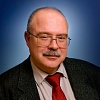The absence of a U.S. ambassador in Moscow ever since the beginning of the Ukraine crisis has been striking. This never happened during the Cold War, when ambassadors were the prime conduits of dialogue between the superpowers. Not so these days. Sergey Lavrov and John Kerry have met many times during the past four months, and have spoken even more often. Occasionally, the two presidents also engage in telephone diplomacy. What the absence of a resident ambassador means today is that the government responsible for such a vacancy deprives itself of day-to-day contact with senior figures in the other country, and this limits its understanding of the host nation's policies.
Initially, the lack of replacement for Michael McFaul, who left Moscow on February 21, 2014, could have been seen as a sign of Washington's disapproval of Russia's actions in Crimea and with regard to Ukraine, an unspoken addition to the sanctions package. Yet, the longer the Spaso House, the U.S. ambassador's residence in Moscow's historical Arbat district, stays unoccupied, the more punishing the situation becomes for the United States: the Russian ambassador in Washington, Sergey Kislyak, has, of course, continued working in Washington. Now, the U.S. government has taken the usual step of presenting to Moscow the candidacy of its future envoy for customary prior approval by the host country.
At least since April, there has been no mystery about the name of McFaul's possible successor. John Tefft is a career diplomat who served as a deputy chief of mission in Moscow, and as ambassador to Lithuania, Georgia, and Ukraine. Most recently, after his retirement last year, he headed a RAND project which brings U.S. and Russian business people together. Last night, Russian TV was scathingly critical of Tefft's past record, blaming him for too close relations with Georgia's Mikheil Saakashvili and for scheming in Ukraine ahead of the Maidan. It also mentioned that some elements in Russia looked forward to his arrival in the hope of getting support in their campaign against the Kremlin.
Yet, this does not mean that Moscow will necessarily turn Tefft down. He would be coming to Moscow under starkly different circumstances than McFaul in January 2012. President Putin's popularity has never been stronger. Anti-government protests in Moscow have long died down. The Russian public attitude toward the United States has hardened. Also,John Tefft is a traditional career diplomat. He would do what diplomats are supposed to be doing under difficult circumstances: reaching out to key figures, listening to what they have to say, and seeking to explain his own government's intentions. He will be an interlocutor par excellence, not a negotiator.
On the Fourth of July, there will still be no U.S. ambassador to greet guests at Spaso. Then, at some point, the Russian government not objecting and the U.S. Senate willing, a small but important element of U.S.-Russian diplomatic normalcy will be restored.
Source: carnegie.ru




